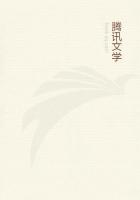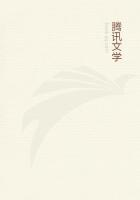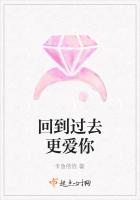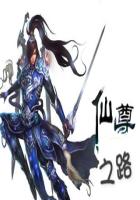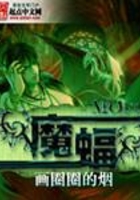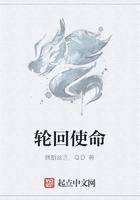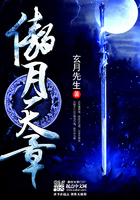It is quite easy to distinguish the parts due to the two collaborators, and to see that George Sand wrote nearly all the book. There are the landscapes, Tarbes Auch, Nerac, the Landes, and a number of recollections of the famous journey to the Pyrenees and of her stay at Guillery with the Dudevant family. The Convent of the Augustines in Paris, with its English nuns and its boarders belonging to the best families, is the one in which Aurore spent three years.
The cloister can be recognized, the garden planted with chestnut trees, and the cell from which there was a view over the city.
All her dreams seemed so near Heaven there, for the rich, cloudy sky was so near--"that most beautiful and ever-changing sky, perhaps the most beautiful in the world," of which we read in _Rose et Blanche_. But together with this romance of religious life is a libertine novel with stories of orgies, of a certain private house, and of very risky and unpleasant episodes. This is the collaborator's share in the work. The risky parts are Sandeau's.
Such, then, is this hybrid composition. It was, in reality, the monstrosity announced by George Sand.
It had a certain success, but the person who was most severe in her judgment of it was Sophie-Victoire, George Sand's mother, who had very prudish tastes in literature. This woman is perfectly delightful, and every time we come across her it is a fresh joy.
Her daughter was obliged to make some excuse for herself, and this she did by stating that the work was not entirely her own.
"I do not approve of a great deal of the nonsense," she writes, "and I only let certain things pass to please my publisher, who wanted something rather lively. . . . I do not like the risky parts myself. . . ." Later on in the same letter, she adds:
"There is nothing of the kind in the book I am writing now, and I am using nothing of my collaborator's in this, except his name."[15]
[15] _Correspondance_: To her mother, February 22, 1832.
This was true. Jules Sand had had his day, and the book of which she now speaks was _Indiana_. She signed this "George Sand."The unpublished correspondence with Emile Regnault, some fragments of which we have just read, contains a most interesting letter concerning the composition of _Indiana_. It is dated February 28, 1832. George Sand first insists on the severity of the subject and on its resemblance to life. "It is as simple, as natural and as positive as you could wish," she says.
"It is neither romantic, mosaic, nor frantic. It is just ordinary life of the most _bourgeois_ kind, but unfortunately this is much more difficult than exaggerated literature. . . . There is not the least word put in for nothing, not a single description, not a vestige of poetry. There are no unexpected, extraordinary, or amazing situations, but merely four volumes on four characters.
With only just these characters, that is, with hidden feelings, everyday thoughts, with friendship, love, selfishness, devotion, self-respect, persistency, melancholy, sorrow, ingratitude, disappointment, hope, and all the mixed-up medley of the human mind, is it possible to write four volumes which will not bore people?
I am afraid of boring people, of boring them as life itself does.
And yet what is more interesting than the history of the heart, when it is a true history? The main thing is to write true history, and it is just that which is so difficult. . . ."This declaration is rather surprising to any one who reads it to-day. We might ask whether what was natural in 1832 would be natural in 1910? That is not the question which concerns us, though. The important fact to note is that George Sand was no longer attempting to manufacture monstrosities. She was endeavouring to be true, and she wanted above everything else to present a character of woman who would be the typical modern woman.
"Noemi (this name was afterwards left to Sandeau, who had used it in _Marianna_. George Sand changed it to that of _Indiana_)is a typical woman, strong and weak, tired even by the weight of the air, but capable of holding up the sky; timid in everyday life, but daring in days of battle; shrewd and clever in seizing the loose threads of ordinary life, but silly and stupid in distinguishing her own interests when it is a question of her happiness; caring little for the world at large, but allowing herself to be duped by one man;not troubling much about her own dignity, but watching over that of the object of her choice; despising the vanities of the times as far as she is concerned, but allowing herself to be fascinated by the man who is full of these vanities. This, I believe,"she says, "is the usual woman, an extraordinary mixture of weakness and energy, of grandeur and of littleness, a being ever composed of two opposite natures, at times sublime and at times despicable, clever in deceiving and easily deceived herself."This novel, intended to present to us the modern woman, ought to be styled a "feminist novel." It was also, as regards other points of view. _Indiana_ appeared in May, 1832, _Valentine_ in 1833, and _Jacques_ in 1834. In these three books I should like to show our present feminism, already armed, and introduced to us according to George Sand's early ideas.
_Indiana_ is the story of a woman who had made an unfortunate marriage.
At the age of nineteen she had married Colonel Delmare.
Colonels were very much in vogue in those days, and the fact that he had attained that rank proves that he was much older than she was.
Colonel Delmare was an honest, straightforward man in the Pharisaical sense of the word. This simply means that he had never robbed or killed any one. He had no delicacy and no charm, and, fond as he was of his own authority, he was a domestic tyrant.
Indiana was very unhappy between this execrable husband and a cousin of hers, Ralph, a man who is twice over English, in the first place because his name is Brown, and then because he is phlegmatic.

